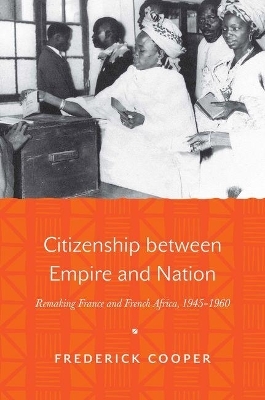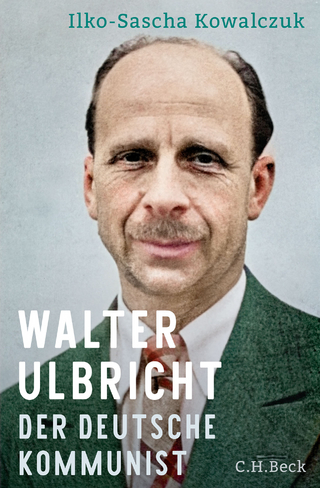
Citizenship between Empire and Nation
Princeton University Press (Verlag)
978-0-691-16131-0 (ISBN)
As the French public debates its present diversity and its colonial past, few remember that between 1946 and 1960 the inhabitants of French colonies possessed the rights of French citizens. Moreover, they did not have to conform to the French civil code that regulated marriage and inheritance. One could, in principle, be a citizen and different too. Citizenship between Empire and Nation examines momentous changes in notions of citizenship, sovereignty, nation, state, and empire in a time of acute uncertainty about the future of a world that had earlier been divided into colonial empires. Frederick Cooper explains how African political leaders at the end of World War II strove to abolish the entrenched distinction between colonial "subject" and "citizen." They then used their new status to claim social, economic, and political equality with other French citizens, in the face of resistance from defenders of a colonial order. Africans balanced their quest for equality with a desire to express an African political personality. They hoped to combine a degree of autonomy with participation in a larger, Franco-African ensemble.
French leaders, trying to hold on to a large French polity, debated how much autonomy and how much equality they could concede. Both sides looked to versions of federalism as alternatives to empire and the nation-state. The French government had to confront the high costs of an empire of citizens, while Africans could not agree with French leaders or among themselves on how to balance their contradictory imperatives. Cooper shows how both France and its former colonies backed into more "national" conceptions of the state than either had sought.
Frederick Cooper is professor of history at New York University and has been visiting professor at the Ecole des Hautes Etudes en Sciences Sociales, the Ecole Normale Superieure, and the Universite de Paris VII. His many books include Colonialism in Question and Empires in World History (Princeton).
List of Illustrations vii Preface ix Notes on Language and Abbreviations xv Introduction 1 Chapter 1 From French Empire to French Union 26 Chapter 2 A Constitution for an Empire of Citizens 67 Chapter 3 Defining Citizenship, 1946-1956 124 Chapter 4 Claiming Citizenship: French West Africa, 1946-1956 165 Chapter 5 Reframing France: The Loi-Cadre and African Federalism, 1956-1957 214 Chapter 6 From Overseas Territory to Member State: Constitution and Conflict, 1958 279 Chapter 7 Unity and Division in Africa and France, 1958-1959 326 Chapter 8 Becoming National 372 Conclusion 431 Bibliography 449 Index 467
| Erscheint lt. Verlag | 21.7.2014 |
|---|---|
| Zusatzinfo | 2 Maps |
| Verlagsort | New Jersey |
| Sprache | englisch |
| Maße | 152 x 235 mm |
| Gewicht | 822 g |
| Themenwelt | Geschichte ► Allgemeine Geschichte ► Zeitgeschichte |
| Geisteswissenschaften ► Geschichte ► Regional- / Ländergeschichte | |
| Geschichte ► Teilgebiete der Geschichte ► Wirtschaftsgeschichte | |
| Sozialwissenschaften ► Politik / Verwaltung | |
| ISBN-10 | 0-691-16131-3 / 0691161313 |
| ISBN-13 | 978-0-691-16131-0 / 9780691161310 |
| Zustand | Neuware |
| Haben Sie eine Frage zum Produkt? |
aus dem Bereich


